IC Markets and Pepperstone are Australian brokers, but they have a few key differences, especially in the spread they offer. Let's check the spread comparison between IC Markets and Pepperstone.
Both IC Markets and Pepperstone are considered to be two of the most trustworthy forex brokers in the business. Both of these companies offer a variety of trading services to traders all over the world. Both of these brokers are well-known for having low spreads, which makes them an appealing choice for traders who are interested in minimizing the costs associated with their trading. As a direct consequence of this, a significant number of traders find it difficult to consider one broker over the other. In this piece, we will examine the spreads provided by both brokers in great detail and then compare those spreads across a number of other asset classes.
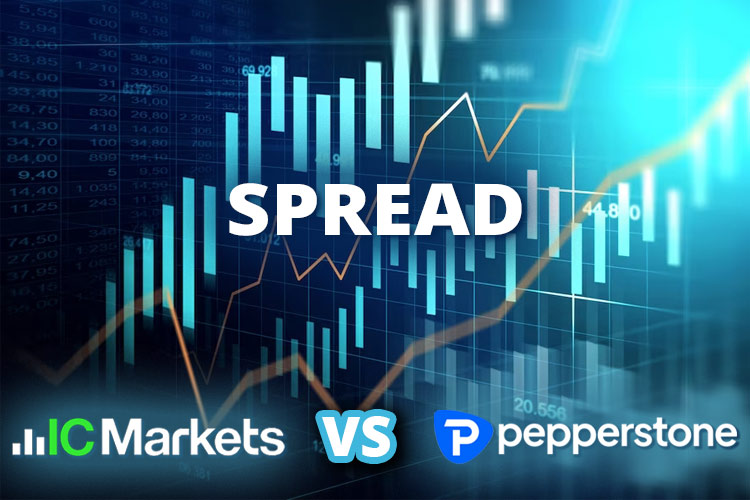
Forex Trading Spreads
IC Markets and Pepperstone are well-known for offering low-cost trading options, especially in terms of spreads. Both brokers provide a raw spread account with commission-based pricing, which means traders are charged a commission on each trade in addition to the raw spread of the currency pair they are trading. This pricing model offers traders transparency and allows them to see exactly what they are paying for each trade, making it easier to manage their trading costs.
When it comes to forex spreads, IC Markets has some of the lowest spreads in the market. The minimum spread for major currency pairs is 0 pips, and the average spread for EUR/USD is 0.02 pips. The minimum spread for major currency pairs at Pepperstone is also 0 pips, but the average spread for EUR/USD is 0.16 pips. It is worth noting that both brokers have extremely tight spreads, allowing traders to execute trades at a lower cost.
However, in terms of the average spread for EUR/USD, IC Markets has a slight advantage over Pepperstone, which may be an important factor for traders who frequently trade this currency pair.
Commodity Trading Spreads
Commodities are available for trading at IC Markets and Pepperstone, and both brokers offer minimal spreads on these securities. In terms of Brent crude oil futures, IC Markets has a relatively competitive minimum spread of 0.02 pips. At IC Markets, the average spread for Brent crude oil futures is 0.028 pips, which is smaller than the industry average. Nevertheless, for Brent crude oil futures, Pepperstone has a minimum spread of 0.03 pips and an average spread of 0.034 pips. Although Pepperstone's average spread is slightly greater than IC Markets', it is still a highly competitive product.
IC Markets has a modest advantage over Pepperstone in terms of other commodity futures contracts, with somewhat lower spreads for cocoa, soybeans, and wheat. As a result, IC Markets is a superior option for traders searching for cheaper trading expenses on these assets.
Overall, both IC Markets and Pepperstone provide traders with a diverse range of commodities and highly competitive spreads. While IC Markets has a tiny advantage in terms of lower spreads on particular commodities, both brokers offer highly competitive pricing on all commodities. Traders wishing to trade commodities with a low-cost broker will find IC Markets or Pepperstone appealing.
Index Trading Spreads
In addition to forex and commodity trading, both IC Markets and Pepperstone also offer trading in major indices. With the popularity of index trading increasing over the years, it is important for brokers to provide clients with competitive spreads. Both brokers offer tight spreads on index trading, but there are slight differences in the spreads offered.
IC Markets' minimum spread for the US Wall Street 30 index is 1.0 pips, which is the same as Pepperstone's minimum spread. However, IC Markets' average spread for the US Wall Street 30 index is 1.411 pips, which is slightly lower than Pepperstone's average spread of 1.49 pips. This indicates that IC Markets may be a slightly better option for traders who frequently trade the US Wall Street 30 index.
For other major indices such as the Germany 40 index and the US SPX 500 index, IC Markets once again has slightly lower average spreads than Pepperstone. IC Markets' average spread for the Germany 40 index is 0.9 pips, while Pepperstone's average spread is 1.0 pips. Similarly, IC Markets' average spread for the US SPX 500 index is 0.3 pips, while Pepperstone's average spread is 0.4 pips. These small differences in average spreads may not make a significant impact on a trader's bottom line, but it is worth noting that IC Markets' spreads are slightly more competitive for index trading.
It's important to keep in mind that spreads can change depending on market conditions. During periods of high volatility, spreads can widen significantly. It's important for traders to keep track of market conditions and adjust their trading strategies accordingly. Both IC Markets and Pepperstone offer traders economic calendars and other tools to stay updated with the latest market news and events.
Precious Metals Trading Spreads
Both IC Markets and Pepperstone provide low precious metal spreads, which is especially appealing to traders who like to invest in safe-haven assets such as gold and the US dollar. The minimal spread for gold vs the US dollar at IC Markets is 0 pips, which implies that traders may execute transactions without incurring any additional costs owing to spreads. The average spread for gold at IC Markets is 1.083 pips, which is somewhat lower than the average spread at Pepperstone, which is 1.3 pips.
Spreads for other precious metals, such as silver and platinum, are likewise quite competitive in IC Markets. Silver's minimum spread vs the US dollar is 0 pips, with an average spread of 0.101 pips. The smallest spread for platinum is 0 pips, with an average spread of 4.836 pips. In comparison, the minimum spread for silver at Pepperstone is 0.2 pips, with an average spread of 0.204 pips. The lowest spread for platinum at Pepperstone is 5.0 pips, with an average spread of 5.177 pips. As a result, IC Markets has an advantage over Pepperstone in terms of offering cheaper spreads for precious metal trading.
See Also:
Overall, both brokers provide narrow spreads and reasonable pricing across a wide range of asset classes, making them both appealing to traders. Traders looking for low spreads might look into IC Markets, which has slightly lower spreads in most asset classes. However, before choosing a broker, traders should evaluate other variables such as trading platforms, regulations, and customer service.
Overall Comparison
Both IC Markets and Pepperstone offer very competitive spreads across various asset classes. IC Markets has a slight edge in terms of average spreads for major forex pairs, as well as for some commodities, indices, and precious metals. However, traders should also consider other factors such as trading platforms, regulatory oversight, and customer support when choosing a broker.
IC Markets offers traders access to a wide range of trading platforms, including the popular MetaTrader 4 and 5 platforms, as well as cTrader. The broker is also regulated by the Australian Securities and Investments Commission (ASIC), the Financial Services Authority (FSA) of Seychelles, and the Cyprus Securities and Exchange Commission (CySEC). Customer support is available 24/7, with a dedicated team of professionals available to answer any questions or concerns.
Pepperstone also offers a wide range of trading platforms, including MetaTrader 4, MetaTrader 5, and cTrader. The broker is regulated by the Australian Securities and Investments Commission (ASIC) and the Financial Conduct.
As Australian brokers, which is better, IC Markets or Pepperstone? Find the answer in the article IC Markets Vs Pepperstone, Which is the Better Australian Broker?

 Free FOREX Virtual Private Server
Free FOREX Virtual Private Server Dedicated FREE FOREX VPS
Dedicated FREE FOREX VPS MT4 Demo Contest, Get $500
MT4 Demo Contest, Get $500 Sign Up for an Account, Claim 60% Deposit Bonus
Sign Up for an Account, Claim 60% Deposit Bonus Free MT4/MT5 VPS 2024
Free MT4/MT5 VPS 2024 Send E-mail and Get Free Merchandise
Send E-mail and Get Free Merchandise $1K Refer a Friend Bonus for Pepperstone Pro clients
$1K Refer a Friend Bonus for Pepperstone Pro clients Maximize Your Earnings with 100% Deposit bonus
Maximize Your Earnings with 100% Deposit bonus Trade to Win, $5,000 Monthly Demo Contest
Trade to Win, $5,000 Monthly Demo Contest Claim 30% + 15% Deposit Bonus from LiteFinance
Claim 30% + 15% Deposit Bonus from LiteFinance
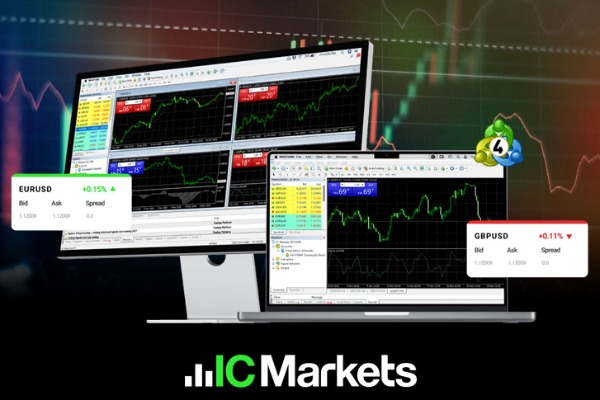
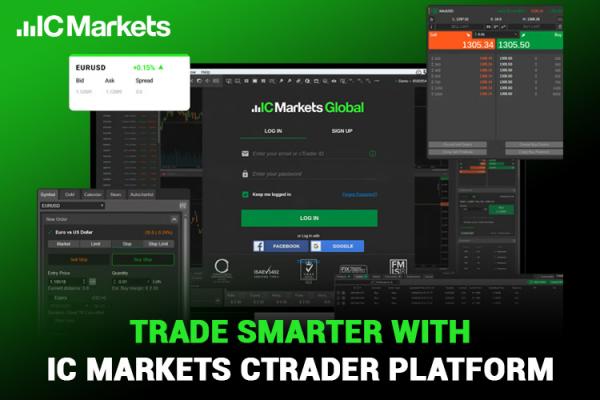


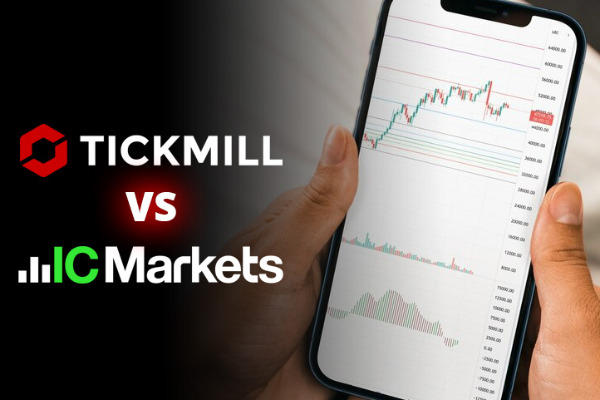
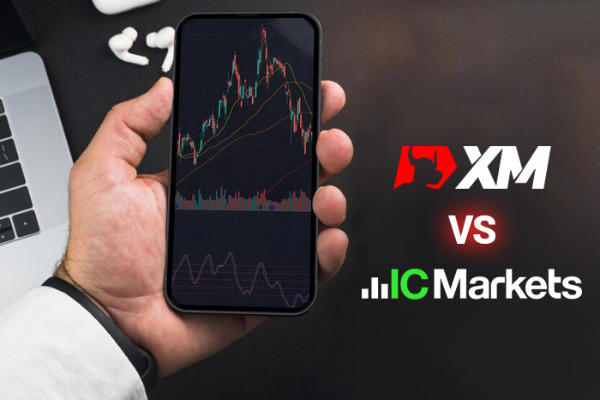



26 Comments
Yanto
Feb 23 2023
I apologize that my question may be off-topic. Based on the article, there are some terms that I'm really confused about which are spread and pips. Wherever it spreads, there are pips. What is the actual spread and pips, and what is the value of the spread and pips if I convert to dollars.
I only know that the spread and pips are fees I can pay to the broker, but I also don't know when I paid the broker. And the other that I know is the lower spread mean lower fees. This seems very confusing to me man.
Theo Stevan
Feb 23 2023
Yanto: The spread will be calculated at the opening of the trade. So you no longer pay the spread. Everything is billed automatically. Whereas, in terms of spreads and the pips themselves, the spread is the difference between the bid and ask prices, and the unit of the spread is the number of pips.
For example :
Buy price is 1,0000 and ask price is 1,0006, spread is 6 and spread is pip. So the spread of the above example; 6 dots. And if you want to convert pips to dollars, the simple thing to count is to see a lot. If you open 1 lot (Standard), the pip value is $10; 0.1 lot means 1 dollar (mini) and 0.01 lot means 0.1 dollar (micro). So for a standard lot, the example above might be $60; mini lot $6 and micro lot $0.6
You can see the article about the spread itself at here : How Does Spread Affects In the Profit
Mike
Feb 23 2023
Thank you for the article author. It really helped me choose between two brokers that offer low spreads and competitive spreads. I was planning to trade only Forex and Metals (Gold) because I think it is very normal for a trader to trade Forex and Gold. And I can find many articles where I can learn from forex and gold trading, as well as tips and tricks on how to do Forex and Gold Trading can be found more easily than other assets.
So, I plan to trade with IC Market because the spreads are lower than Pepperstone while the commission is also lower than Pepperstone. Overall the IC market, for me based on the article, the spreads are actually lower than Pepperstone (which I like in the article saying that the average pips I can get in EUR/USD is 0.02 pips. ) and the commission is also just $3.50.
Vinicius
Feb 23 2023
Mike: I also 100% agree with you as I find the fees on IC Market to be lower than in Pepperstone. During this time, I see another Pepperstone feature, such as a trading platform, that offers a variety of choices. I mean, there is a problem with Metatrader, especially in iOS, the metatrader 4 and 5 banned, so iPhone users may need to choose a different platform to use. And because Pepperstone has many trading platforms to choose from: Metatrader 4 and 5, cTrader and also TradingView which is very known by trader beside Metatrader.
meanwhile, IC Market also has many trading platforms but for me it is very strange to know about ProDeal and webIREESS available there. What is the webIREESS and ProDeal trading platform?
Gavi
Feb 23 2023
Vinicius: webIRESS is another trading platform created by IRESS company. Iress is a fully functional trading platform with advanced features. What makes the Iress platform superior is its transparent direct market access (DMA) that allows trading of CFDs on stocks and futures as well as other non-DMA financial instruments such as indices, commodities commodities and foreign exchange.
That moment
ProDeal is also a trading platform created by ProDeal from the United States.
I think IRESS is more famous than ProDeal and I can actually agree that IRESS is a better choice if metatrader is banned. it is my opinion, you may agree or not, thank you!
Andrew
Feb 25 2023
As a new trader, I have come across the difference between trading stocks and indices. I've heard these terms are used interchangeably, but I don't know how they differ. I mean, whenever there are index stocks, there are also stocks. Anyway, what is the difference. Sorry, off topic.
And also, can you explain the difference between stock and index trading in a way that is easy to understand for a beginner like me? How do I determine which approach best suits my investment goals and risk tolerance. And more importantly, are these two types of trading suitable for a novice trader like me?
Sandy
Feb 25 2023
Andrew: Stocks involve the individual buying and selling of shares of a particular company. If you invest in shares, you become a part owner of that company and are entitled to a share of the company's profits, as well as any voting rights associated with the stock. However, if you trade share CFDs in a broker, you will not get the functionality as part of the owner, instead you can buy the value of the shares and trade profitably through them. again.
Index, on the other hand, is a term used to refer to a group of stocks. It's as simple as that. Meanwhile, index trading would involve buying and selling a group of stocks that make up the index, such as the S&P 500 or the Dow Jones Industrial Average.
As for which approach is best for you, it really depends on your investment goals and risk tolerance. In my opinion, whether you agree or not, if you are looking for higher potential returns and are willing to take on more risk, stock trading might be a better option. However, if you are looking for a more diversified portfolio and want to minimize risk, index trading may be more suitable.
Ultimately, it is important to conduct your own research and seek the advice of a qualified financial professional before making any investment decisions.
Yohan
Feb 25 2023
I am beginner here, Just want to ask about the Metal Trading, and the article coincidence explain about the spread which include silver and gold. Actually, I always feeling confused about whether to choose silver or gold CFD trading. I mean the silver and gold offer various advantages, such as safe-haven status and potential for long-term growth, and very useful in the manufactur electronic devices industrial. And because Silver seems more cheaper I am still not sure which one is the better trading option since in CFD, the trading is more like Forex, which is silver and gold can be use the same funds to trade in.
If posibble, can you explain the difference between silver and gold CFD trading, and which one is riskier? Thank you!
Marc
Feb 25 2023
Yohan: In CFD trading, in my opinion, trading silver and gold CFDs has almost the same risks and which trade is riskier can depend on a number of factors.
Silver is generally considered a more volatile asset than gold, which means that its price can fluctuate faster and to a greater extent. This can make silver trading riskier for traders who are not comfortable with market volatility.
Another factor to consider is the demand for each metal. Gold is often considered a safe-haven, meaning its price tends to rise during times of uncertainty or economic uncertainty. Silver, on the other hand, has a broader range of industrial uses, which can make its price more sensitive to changes in supply and demand.
In general, whether trading silver or gold CFDs is riskier for you will depend on your personal Money management, and trading on a demo account looks more promising as you can learn more about trading without depositing real money.
Yohan
Feb 25 2023
Marc:
Wow, dude that was very good explanation. to think about more volatile at the market and the spread that IC market has offer in Sivler trading. I think as the scalper that will benefit from the fluctuate market, I think IC Market can be good broker since it offer zero spread at the Silver.
Thank you for your answer, btw
Mane
Mar 26 2023
I've noticed that both Tickmill and Pepperstone offer competitive spreads that are acceptable as cheap fees. Most people focus on their forex spreads, and it's clear that these brokers can be categorized as low spread brokers. Both brokers offer MT4 and MT5 as their trading platforms. Some people say that MT5 offers better spreads than MT4. Is this true? The spreads offered by both brokers in the article are already very low, so I'm curious to know if there's a significant difference between the two platforms when it comes to spreads
Izumi Hiroshi
Mar 26 2023
Yep, both Tickmill and Pepperstone are known for offering competitive spreads, which is great news for traders looking for cheap fees. And based on their low forex spreads, it's safe to say they fall under the category of low spread brokers.
Now, onto your question - both brokers do offer both MT4 and MT5 trading platforms. As for whether MT5 offers better spreads than MT4, that's a bit of a tricky question. While it's true that MT5 has some advanced features that may allow for better spreads, ultimately it's up to the broker to determine what spreads they offer on each platform. So, even if one platform theoretically has the potential for better spreads, it doesn't necessarily mean that's what you'll get from every broker.
That being said, with both Tickmill and Pepperstone offering consistently low spreads across their platforms, you can rest assured that you're getting a good deal regardless of which one you choose.
Mane
Mar 26 2023
So, let me get this straight - whether you choose MT4 or MT5 doesn't depend on the trading platform itself, right? It actually depends on the broker you go with because they're the ones who determine the spread you'll get. And I see now that even though MT5 supports ECN and can offer low spreads, if you go with a standard account, it won't affect the spread you get. Plus, it's good to keep in mind that the speed of transactions on both platforms also depends on the broker. Anyway, thanks for clearing that up for me!
Lloriss
Mar 26 2023
When it comes to comparing the spreads offered by IC Markets and Pepperstone in commodity CFDs, it's clear that IC Markets has the lower spread. But what caught my attention is the specific type of crude oil that IC Markets offers for trading: Brent Crude Oil. I'm not entirely sure what Brent Crude Oil is and why it might make a difference in the spreads offered by brokers like Tickmill.
From what I understand, crude oil is a vital resource for many countries around the world, and the demand for it is always high. However, there are different types of crude oil, each with their own characteristics, and Brent Crude Oil is just one of them. Perhaps it has some unique features that make it more or less attractive to traders, or maybe there's a difference in the supply and demand dynamics for this particular type of crude oil that affect the spreads offered by brokers.
Overall, I'm curious to learn more about the role that Brent Crude Oil plays in the forex market and how it might impact the spreads offered by brokers like Tickmill.
Shane
Mar 26 2023
Bro, Brent Crude Oil is a type of crude oil that is widely used as a benchmark for oil prices. It's named after the North Sea oilfield where it's produced. The price of Brent Crude Oil is influenced by a variety of factors, including global supply and demand, geopolitical events, and production disruptions.
When it comes to trading Brent Crude Oil, brokers like Tickmill may offer low spreads because it's a popular commodity to trade and there's generally high liquidity in the market. However, it's important to note that spreads can still vary depending on the broker and market conditions.
Johan
Apr 18 2023
Hey there, I'm curious about the impact of spreads on trading results. Is it true that even a small difference in spreads can significantly affect our profits? I read that low spreads come with higher commissions, and for high-volume trading, the commission fees can add up to a lot. For example, at Pepperstone, trading 1 lot can cost $7, which seems pretty high to me.
I'm also wondering about trading with higher spreads, like with the standard account that starts at 1.6 pips but doesn't have a commission fee. Can you explain how this works and whether it might be a better option for me? Thanks!
Erwin
Apr 18 2023
Spread can definitely impact your trading results significantly. Essentially, the spread is the difference between the bid price and the ask price of a currency pair or other asset. The lower the spread, the less you have to pay to enter or exit a trade, which can increase your potential profits. On the other hand, a higher spread can eat into your profits and make it more difficult to achieve your trading goals.
Now, when it comes to choosing between a minimum spread account and a standard account with higher spreads but no commission, there are pros and cons to both options. With a minimum spread account, you will generally have lower spreads but will need to pay a commission on each trade. With a standard account, you may have higher spreads but won't need to pay a commission.
It's important to consider your trading style and goals when deciding which type of account is right for you. If you plan to make frequent trades with smaller lot sizes, a minimum spread account with a commission may be more cost-effective. But if you prefer to make larger trades less frequently, a standard account with no commission may be a better option.
Lidya
May 20 2023
This article was super helpful in spotting some trading gems in IC Markets and Pepperstone. But I've got a question about the metals themselves. It looks like the pairs for Gold, Silver, and Oil all involve the US Dollar. Even better, the spread for these pairs at IC Markets is 0 pips!
Now, spreads are tied to liquidity, right? So, I'm curious about the liquidity specifically in Gold vs. US Dollar (XAU/USD). And why is it that trading Gold, Silver, and Oil are mostly paired with the US Dollar? What's the deal with that?
Thanks for the insights!
Ferry
May 20 2023
@Lidya: Well, my friend, the liquidity in Gold vs. US Dollar is usually pretty solid. Gold is a hot commodity and attracts traders and investors from all corners of the globe. It's seen as a safe-haven asset, you know, a go-to when things get shaky in the market. On the flip side, the US Dollar is a major global currency, widely accepted and traded. So when you pair Gold with the US Dollar, you've got yourself a liquid combination. (Read : GOLD VS US DOLLAR)
As for why these commodities are mostly paired with the US Dollar, it's got a lot to do with tradition and convenience. The US Dollar has long been a dominant currency in international trade, and it's considered a benchmark for many commodities. Pricing and trading Gold, Silver, and Oil in US Dollars just makes things easier and more standardized. Plus, fluctuations in the US Dollar can have a big impact on the prices of these commodities, so it gives traders a useful reference point.
Hope that clears things up, mate! If you've got any more questions, just fire away!
Lidya
Jul 1 2023
Why do spreads vary and sometimes deviate from the advertised values in certain brokers like IC Markets? The article mentions competitive spreads for precious metals, such as silver and platinum, but the actual spreads provided differ slightly from the minimum and average values stated. Could you shed some light on the factors that can cause spreads to fluctuate or deviate from their expected levels in brokers like IC Markets? Is it due to market volatility, liquidity conditions, or other factors? Additionally, how do these slight variations in spreads impact traders' strategies and overall trading experience?
Eugene
Jul 4 2023
@Lidya: When it comes to spreads in brokers like IC Markets, it's not uncommon to see some variations or deviations from the advertised values. Several factors can contribute to these fluctuations and slightly different spreads. Market volatility plays a significant role, as periods of high volatility can lead to wider spreads as brokers try to manage their risk. Liquidity conditions also come into play, as lower liquidity can result in higher spreads.
Other factors include the broker's pricing model and execution method. Some brokers, like IC Markets, offer ECN (Electronic Communication Network) or STP (Straight Through Processing) execution, which means they route client orders directly to liquidity providers. In such cases, spreads can vary depending on the available liquidity from these providers.
These slight variations in spreads caan impact traders' strategies and overall trading experience. For example, scalpers who rely on quick trades and small profit margins may find wider spreads detrimental to their strategy. On the other hand, longer-term traders or those employing different trading techniques might be less affected by small deviations in spreads. (read : How Does Spread Affected Profit)
Brandy
Jul 5 2023
What are the possibilities of obtaining low spreads for safe-haven assets like gold and the US dollar in IC Markets and Pepperstone? In IC Markets, the minimal spread for gold against the US dollar is 0 pips, allowing traders to execute transactions without additional spread costs. The average spread for gold in IC Markets is 1.083 pips, which is slightly lower than Pepperstone's average spread of 1.3 pips. Furthermore, IC Markets offers competitive spreads for other precious metals. Silver has a minimum spread of 0 pips and an average spread of 0.101 pips, while platinum has a minimum spread of 0 pips and an average spread of 4.836 pips. In comparison, Pepperstone's minimum spread for silver is 0.2 pips, with an average spread of 0.204 pips. Similarly, the lowest spread for platinum in Pepperstone is 5.0 pips, with an average spread of 5.177 pips. Considering these details, what are the possibilities of benefiting from low spreads for gold and the US dollar as safe-haven assets in IC Markets and Pepperstone?
Raphael Till
Aug 26 2023
Greetings! I'm reaching out to express my keen interest in finance. I've observed that many brokerage firms have policies that prohibit individuals under the age of 18 from participating in trading activities. Despite these challenges, I've been actively refining my trading skills on a demo account for a considerable period, and I have confidence in my abilities.
I came across an article that mentioned, "Both IC Markets and Pepperstone provide competitive spreads for precious metals, which is particularly attractive to traders interested in safe-haven assets like gold and the US dollar."
These brokers offer US assets but do not explicitly state that they are regulated in the United States. Are they indeed regulated by US authorities? In fact, among the numerous trading brokers I'm familiar with, it's quite uncommon for brokers to obtain licenses from US regulatory bodies. As a US-based trader, can I trust these brokers with my funds and conduct trading activities within the United States?
Hammilton
Aug 28 2023
To put it simply, brokers like IC Markets and Pepperstone must adhere to the rules and regulations established by various countries to ensure fair and secure trading practices. In the United States, organizations such as the SEC and CFTC oversee brokers to ensure their compliance with regulations and to safeguard the interests of investors.
Now, when we talk about international brokers like IC Markets and Pepperstone, it can be challenging for them to meet all the requirements set by U.S. authorities. They are required to register with the SEC, become members of organizations like FINRA, and fulfill specific financial obligations. This can be quite burdensome and may not align with the typical practices of international brokers. Consequently, some brokers opt not to accept clients from the United States. This decision helps them avoid legal and regulatory complexities and allows them to focus on serving clients from other countries where regulations are more aligned with their operational methods.
Based on the articles I've perused, it's evident that obtaining a license in the United States is a daunting task due to the stringent requirements. One of the primary reasons why forex brokers decline U.S. clients is the rigorous regulatory environment enforced by the U.S. government. The U.S. government has enacted numerous regulations pertaining to forex brokerages, including the Dodd-Frank Act introduced in 2010. This legislation mandates that forex brokers register with the Commodity Futures Trading Commission (CFTC) and the National Futures Association (NFA), a process that can be both time-consuming and costly.
While the United States has implemented many regulations, it's essential to recognize that these regulations are designed to safeguard traders and promote fairness and transparency in the forex market. Therefore, choosing a regulated and trustworthy forex broker is paramount, even if they do not cater to U.S. clients. Indeed, although IC Markets and Pepperstone may not have a presence in the American market, they remain reputable brokers with global recognition. Both are regulated entities and offer favorable trading conditions for both professional and casual traders. Furthermore, they provide some of the best educational resources and research tools for trading strategies.
Nevertheless, if you still require a brokerage account subject to U.S. regulations, please read this: Forex Brokers Offering Us Clients
Michael
Oct 25 2023
Hello! I'm quite intrigued by IC Market Broker due to its competitive low spreads compared to other brokers. However, I have a few questions regarding their regulatory framework. With IC Markets offering a diverse range of trading platforms, including the widely-used MetaTrader 4 and 5, as well as cTrader, it's essential to clarify which regulatory body holds the primary authority over IC Markets. The broker has established associations with various regulatory entities, including the Australian Securities and Investments Commission (ASIC), the Financial Services Authority (FSA) of Seychelles, and the Cyprus Securities and Exchange Commission (CySEC). But for those of us looking for a clear understanding of the leading regulatory authority responsible for ensuring financial compliance and protecting the interests of IC Markets' clients, could you specify which of these entities serves as the primary regulator for IC Markets' operations?
Nabil
Oct 29 2023
@Michael: Hello! It's great to hear that you're interested in IC Markets. I will answer with shortly! Hopefully, you can understand and know about the IC Market's regulation! SO, when it comes to IC Markets' primary regulatory authority, it's the Australian Securities and Investments Commission (ASIC) that holds the main regulatory oversight over their operations. ASIC is a reputable financial regulatory body in Australia and plays a significant role in ensuring that IC Markets complies with financial regulations and maintains the standards required to protect the interests of its clients. So, you can have confidence in the regulatory framework provided by ASIC when considering IC Markets as your broker. Happy trading!